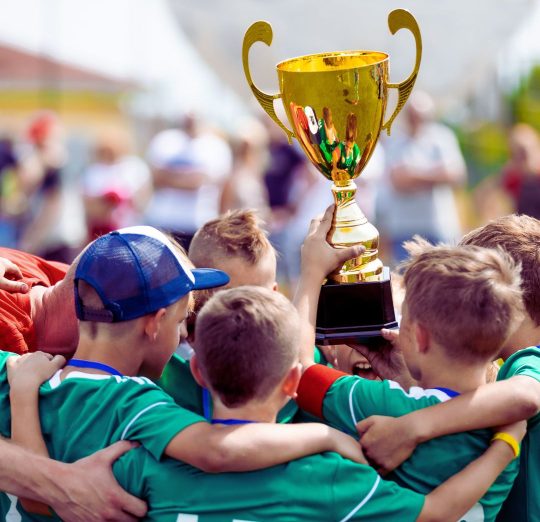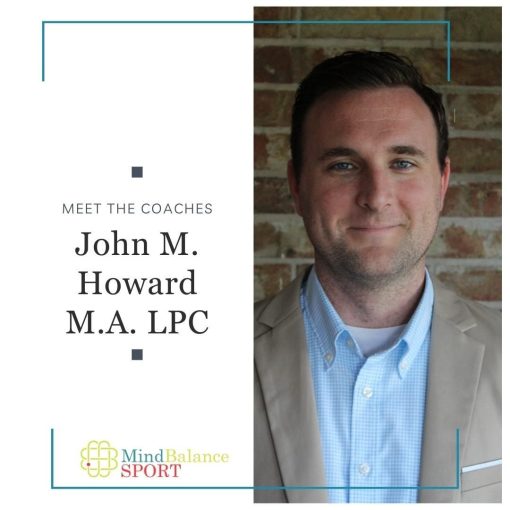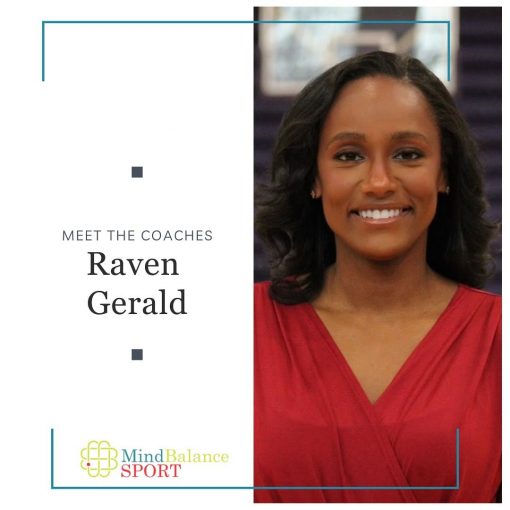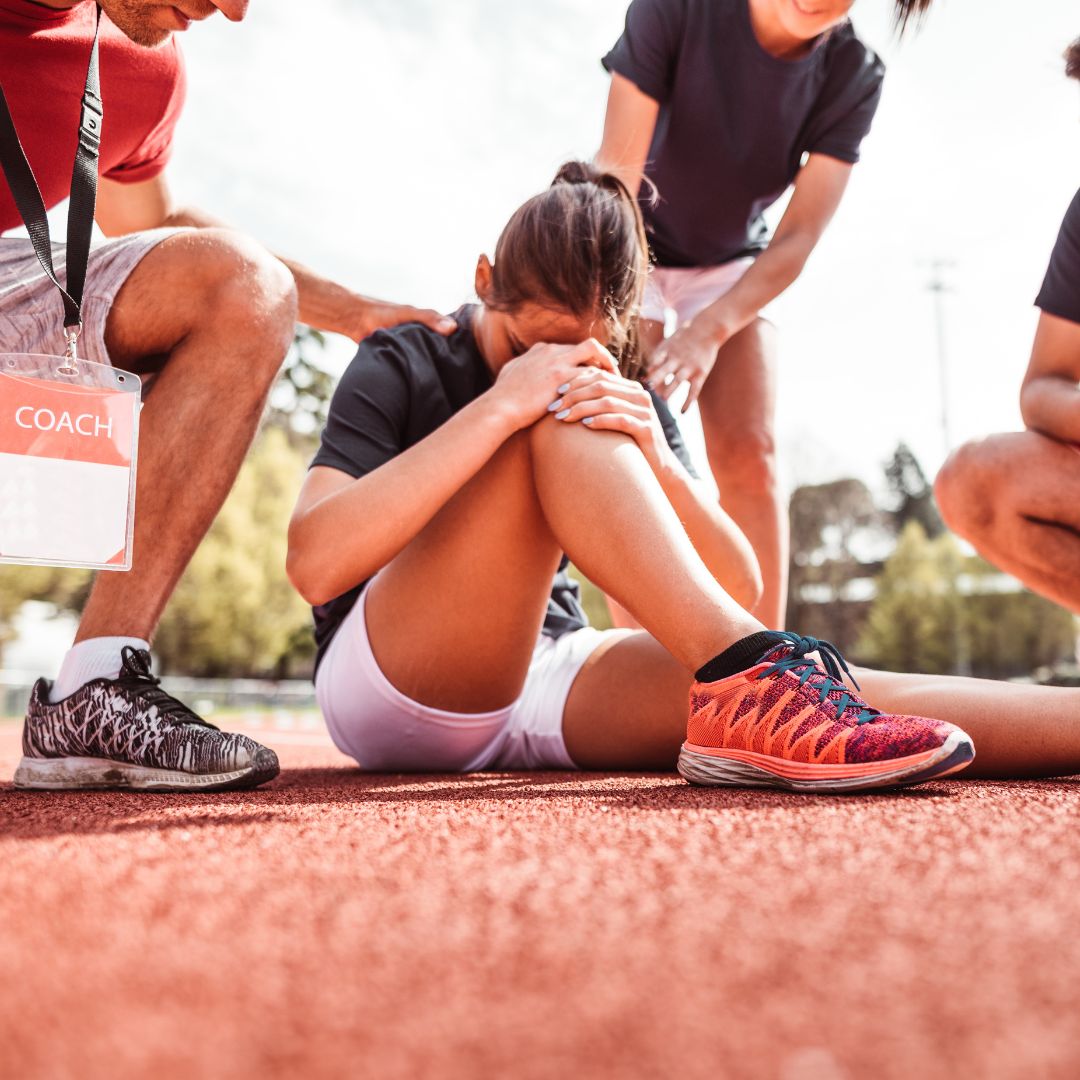Sports Psychologist in Plano, TX
You want to work on your mental game, but how do you train your brain?
At MindBalanceSPORT, We Train The Other Half Of The Athlete.
You want to work on your mental game, but how do you train your brain?
Mental training does not get much media attention, but at MindBalanceSPORT we know it is a game changer. The mental skills you will learn at MindBalanceSPORT are generalizable in the classroom, in sport and in life!
We know that mental skills can be successfully taught, even at an early age.

Our Services
Meet the Team





testimonials
Athlete Stories: Real Comebacks, Real Results

Emma, a high school basketball player, tore her ACL in the middle of her junior season. After surgery, she struggled with self-doubt and fear every time she stepped back on the court. Through sport psychology training, she learned visualization techniques and confidence-building exercises that helped her regain trust in her knee. When she returned for her senior season, she didn’t just play—she led her team to the playoffs.

Carlos, a soccer player, suffered a stress fracture in his foot and had to miss half of his season. Sitting out was mentally tougher than the pain itself. We worked on mental engagement strategies to keep him sharp—studying game film, setting small rehab goals, and using mental imagery to stay ready. When he was finally cleared, his confidence never wavered.

Jordan, a track athlete, strained her hamstring before a major competition. She feared losing speed and falling behind competitors. Instead of focusing on what she couldn’t do, we redirected her energy toward mental preparation, using self-talk and goal setting to keep her confidence strong. When she returned, she set a new personal record.
EXCELLENTTrustindex verifies that the original source of the review is Google. It was a great help to my 14-year-old competitive volleyball player daughter. Raven was great to understand and connect with her from start to end. We will continue with our sessions as needed.Trustindex verifies that the original source of the review is Google. Great results! I’ve loved working with Paula. Our sessions have greatly improved both the physical and mental aspects of my tennis game. I’m playing better and having more fun! Highly recommend!Trustindex verifies that the original source of the review is Google. Our family had a wonderful experience with Paula Castro. We needed some additional confidence in a particular area/sport and Paula helped get us there. We know who to turn to if we need help again. She’s been a Blessing. Thank you, Paula!Trustindex verifies that the original source of the review is Google. I highly recommend MindBalanceSPORT. Our son works with John Howard. John is very caring, positive, and effective at working with teenagers. John is an adept listener and created an individualized plan tailored to our son’s personality. After just a few sessions with John, we noticed a significant improvement in our son’s motivation and mental approach to sports and life in general. Our son looks forward to meeting with John and tells us that he benefits immensely from their connection.Trustindex verifies that the original source of the review is Google. Paula Castro is an outstanding professional on the field. She has helped my daughter improve her confidence, preparation, and thanks to these session she feels more prepared and motivated. Paula takes the time also to share (what she can) and align with us as parents to be on the same page. Strongly recommended!Trustindex verifies that the original source of the review is Google. MineBalanceSPORT has quickly become the area's expert in sports psychology. Their reputation is well deserved given their incredibly thoughtful, scientifically based approaches to treating performance-related conditions, and I have only heard glowing, positive feedback from those who have engaged in their program. I will also add that Drs. Jones and Chirby presented to us (our group comprises of 15+ doctors and masters level clinicans) about their program and impressed us all with their level of expertise and passion for this field. I give them my highest recommendation.Trustindex verifies that the original source of the review is Google. Dr. Jones was beyond helpful to me throughout our time together. If you are an athlete and you need advice or assistance this is the place to come to. She completely changed my outlook and mindset in a time when I needed her most. I look forward to staying in touch with her and am forever thankful for her expertise.Trustindex verifies that the original source of the review is Google. Paula has been a huge help with my daughter Morgan coming off her injury. It’s been 18 months since she’s played basketball and she’s thriving because I know Paula is guiding her the right direction. As a mother, I’m extremely gratefulTrustindex verifies that the original source of the review is Google. If you are looking for Amazing Psychologists who can help support you in your sports performance, you need to call MindBalanceSPORT! Dr. Chirby and her colleagues are a wealth of knowledge, they have so many helpful techniques for mind balance, and they have so much compassion for the communities that they serve! Highly recommend!!!
Recovery
While Everyone Has A Physical Ceiling, There Is No Mental Ceiling.
How Sports Counselling in Plano, TX Shapes Mental Resilience for Athletes
How Sports Counselling in Plano, TX Shapes Mental Resilience for Athletes
Confidence plays a pivotal role in athletic performance and mental resilience. The concept of the “confidence continuum” provides a framework to understand how confidence fluctuates and impacts an athlete’s ability to perform under pressure. This continuum represents a spectrum ranging from underconfidence at one end to overconfidence at the other, with optimal confidence positioned in the middle. Sports psychologists utilize this model to help athletes identify their position on this scale and develop strategies to achieve balance.
Understanding the Confidence Continuum
| Zone | Characteristics | Impact on Performance |
| Underconfidence | Doubts about abilities, fear of failure, self-criticism | Reduced focus, poor decision-making, hesitation |
| Optimal Confidence | Balanced belief in skills, realistic expectations, resilience | Improved focus, consistent performance, adaptability |
| Overconfidence | Overestimation of abilities, complacency, neglecting preparation | Mistakes due to carelessness or ignoring weaknesses |
Athletes can experience shifts along this spectrum due to factors such as recent performance outcomes, external pressures (e.g., media or audience), and changes in training intensity or goals.
Why Confidence Matters for Mental Resilience
Mental resilience refers to an athlete’s capacity to recover from setbacks and maintain peak performance despite challenges. Confidence directly influences resilience by determining how athletes perceive obstacles:
– Low confidence often leads athletes to dwell on failures or avoid risks altogether.
– High but balanced confidence encourages persistence during adversity and fosters a growth mindset.
– Excessive confidence, however, may result in underestimating challenges or ignoring constructive feedback.
Sports psychologists emphasize that building mental resilience involves maintaining optimal confidence even when external circumstances fluctuate.
Strategies Sports Psychologists Use
- Helping athletes reflect on their current level of confidence through journaling or discussions.
- Identifying triggers that push them toward underconfidence (e.g., fear of judgment) or overconfidence (e.g., recent victories).
- Teaching athletes how to challenge negative thought patterns that contribute to low self-esteem.
- Addressing overly positive thinking that may lead them into complacency.
- Encouraging mental rehearsals where athletes visualize themselves excelling in challenging situations.
- Reinforcing belief in their preparation and capabilities.
- Developing short-term achievable goals for quick wins that build consistent momentum.
- Aligning long-term objectives with realistic assessments of skills and opportunities for growth.
- Helping athletes accept critical feedback constructively without damaging self-belief.
- Reinforcing progress made rather than focusing solely on outcomes.
Key Takeaways
The role of the confidence continuum is integral not only for improving athletic performance but also for sustaining mental toughness over time. By understanding where they stand on this spectrum and leveraging targeted interventions from sports psychologists, athletes can cultivate balanced self-assurance while remaining adaptable under pressure—an essential skill for success at all levels of competition.
Overcoming Underconfidence with Performance Psychology in Plano, TX
Underconfidence in athletes can be a significant barrier to achieving peak performance. It often stems from fear of failure, negative self-talk, or past setbacks. Left unchecked, it can lead to hesitation, reduced motivation, and a lack of trust in one’s abilities. Sports psychologists play a vital role in helping athletes identify and overcome underconfidence through targeted psychological strategies designed to rebuild self-assurance and cultivate mental resilience.
Common Causes of Underconfidence in Athletes
- Fear of Failure: Anxiety about making mistakes or not meeting expectations.
- Negative Comparisons: Constantly comparing oneself to teammates or competitors.
- Lack of Preparation: Feeling unprepared due to inadequate training or unfamiliarity with competition settings.
- Past Setbacks: Negative performance experiences that become ingrained as limiting beliefs.
Understanding these root causes is essential for creating effective interventions.
How Sports Psychologists Address Underconfidence
- Recognizing negative thought patterns.
- Replacing self-doubt with positive affirmations and constructive thoughts.
- Breaking long-term goals into smaller, attainable milestones.
- Focusing on process-oriented goals rather than outcome-based ones.
- Encouraging athletes to mentally rehearse successful performances.
- Using imagery exercises to build optimism about future outcomes.
- Teaching athletes how to recognize triggers for underconfidence.
- Guiding them on how to respond constructively during high-pressure moments.
- Creating consistent routines that foster a sense of preparedness.
- Building rituals that reduce anxiety before competitions.
Table: Practical Exploring Sports Psychiatry in Plano, TX: Effective Strategies for Athletes
| Technique | Purpose | Example Practice |
| Cognitive Restructuring | Shift negative thinking patterns | Replace “I’ll fail” with “I’ve trained hard for this.” |
| Visualization | Build confidence through imagery | Picture executing a perfect free throw or successful run. |
| Goal Setting | Focus on achievable milestones | Aim for improving personal bests rather than winning every race. |
| Self-Talk Therapy | Cultivate empowering internal dialogue | Use phrases like “I am prepared” instead of “What if I mess up?” |
| Relaxation Exercises | Manage stress and reduce overthinking | Breathing exercises or progressive muscle relaxation before events. |
The Long-Term Benefits of Overcoming Underconfidence
- Increased focus during practice and competition.
- Greater resilience when facing setbacks or challenging opponents.
- Improved ability to perform under pressure without second-guessing decisions.
- Enhanced enjoyment from participating in their sport instead of being weighed down by doubt.
By addressing underconfidence at its roots, sports psychologists empower athletes not only to improve athletic performance but also to develop stronger mental fortitude that benefits them both on and off the field. These tools provide foundational support for thriving in competitive environments while promoting personal growth as well-rounded individuals.
How Sport Performance Training in Plano, TX Can Improve Athletic Confidence and Mental Toughness
Overconfidence, while often seen as a positive trait, can have adverse effects on an athlete’s performance and overall psychological well-being. It occurs when an athlete’s belief in their abilities surpasses their actual skill level or preparation. Understanding this phenomenon is critical for identifying areas where sports psychologists can intervene to optimize performance. Below, we explore the impact of overconfidence and the psychological strategies to address it.
Negative Effects of Overconfidence on Athletic Performance
- Underestimation of Opponents: Athletes may fail to properly evaluate the strengths and capabilities of their competitors, leading to ineffective strategies.
- Neglecting Preparation: Overconfident athletes may believe they do not need as much practice or preparation, resulting in underperformance during critical moments.
- Risky Decision-Making: Excess confidence may encourage athletes to take unnecessary risks without fully considering potential consequences.
- Decreased Focus: An inflated sense of ability can result in complacency, reducing the athlete’s focus on their goals and execution.
- Emotional Reactions to Failure: When faced with unexpected setbacks, overconfident athletes may struggle with frustration or self-doubt because their expectations were unrealistic.
Psychological Interventions to Address Overconfidence
- Conducting performance evaluations using objective metrics such as stats, times, or scores.
- Encouraging honest reflection through video analysis or coach feedback sessions.
- Teaching athletes how to set realistic short-term and long-term goals based on their current skill level.
- Utilizing SMART goal frameworks (Specific, Measurable, Achievable, Relevant, Time-bound) to maintain clarity.
- Implementing mindfulness techniques to help athletes recognize when they are becoming too self-assured.
- Using journaling exercises for tracking thoughts about performance before and after competitions.
- Introducing controlled scenarios that challenge an athlete’s perceived strengths and expose areas needing improvement.
- Role-playing competitive situations where underestimating opponents could lead to failures.
- Collaborating with coaches for regular feedback cycles where strengths are celebrated but weaknesses are constructively addressed.
- Encouraging two-way dialogue between the athlete and support personnel.
Balancing Confidence: The Optimal Zone
| Trait | Description |
| Realistic Self-Appraisal | An accurate understanding of personal ability |
| Motivation for Improvement | A drive to address gaps in skills or strategy |
| Resilience Under Pressure | The ability to adapt without being derailed by setbacks |
Achieving this balance requires consistent effort from both the athlete and their psychological support team.
By addressing overconfidence thoughtfully through tailored interventions and open communication channels with coaches or teammates, athletes can enhance both mental resilience and physical performance without compromising long-term growth opportunities.
Enhance Confidence and Performance with Sports Psychologists in Plano, TX
Building and maintaining optimal confidence is a key factor for athletes aiming to perform at their best. Confidence in sports is not just about blind belief in one’s abilities, but rather a well-founded assurance rooted in preparation, experience, and mental training. Sports psychologists play a pivotal role in helping athletes achieve this balance between underconfidence and overconfidence. Below are some strategies that professionals use to guide athletes toward optimal confidence levels.
Building Optimal Athletic Confidence with a Sports Mental Coach in Plano, TX
- Self-Belief: An unwavering trust in one’s abilities developed through practice and mastery.
- Preparation: Confidence built from knowing you’ve done everything possible during training.
- Resilience: The ability to recover quickly from setbacks or mistakes.
- Focus on the Process: Concentrating on effort and improvement rather than solely on results.
- Adaptability: Recognizing when adjustments are needed and responding effectively under pressure.
Sports psychologists focus on these components to tailor interventions that resonate with each athlete’s unique needs.
Strategies Used by Sports Psychologists
- Athletes are guided to visualize themselves succeeding in specific scenarios, such as landing a perfect routine or scoring the winning goal.
- This prepares their mind to face challenges calmly, reinforcing their sense of control.
- Breaking down long-term goals into smaller, achievable milestones helps build momentum while maintaining motivation.
- Clear goals provide athletes with direction and measurable benchmarks for progress.
- Negative self-talk can erode confidence over time. A sports psychologist helps athletes identify destructive thought patterns and replace them with constructive affirmations.
- Example: | Negative Thought | Constructive Thought | |————————–|————————————| | “I’m terrible at this.” | “I’ve trained hard; I’ll improve.”| | “What if I fail?” | “I’ll give it my best effort.” |
- Encouraging consistent reflection on past successes reinforces an athlete’s belief in their capabilities.
- Developing an internal feedback loop helps athletes acknowledge progress without relying solely on external validation.
- Excessive stress diminishes confidence levels. Techniques such as mindfulness meditation or breathing exercises are used to manage arousal levels before competition.
How to Build Self-Awareness with a Sports Psychologist Near Me
Self-awareness is central to achieving optimal confidence. By understanding how they perceive their strengths, areas for improvement, emotional triggers, and mental responses during competition, athletes gain clarity about the underlying drivers of their performance.
Sports psychologists often employ assessments or reflective practices (e.g., journaling) to encourage greater introspection among athletes. This process allows them not only to recognize fears or doubts but also actively work toward reframing those perceptions into empowering beliefs.
By fostering optimal confidence levels through personalized strategies like these, sports psychologists ensure that high-performance athletes stay mentally resilient even under immense pressure.
Harnessing Past Performance Accomplishments and Experience to Boost Athletic Confidence
Athletes often draw strength and self-assurance from their past performances. Leveraging previous successes is a key strategy sports psychologists use to help athletes build and maintain confidence. This approach not only reinforces an athlete’s sense of capability but also serves as a foundation for overcoming self-doubt during challenging times.
The Psychological Value of Past Achievements
Reflecting on past successes can provide athletes with:
– Evidence of Competence: Validating their ability to perform under pressure.
– Motivation: Encouragement to replicate or surpass earlier accomplishments.
– Resilience: A mental anchor during periods of doubt or adversity.
Sports psychologists understand that even small victories, such as a personal best in training or a successful play in competition, can be powerful tools for self-belief.
Strategies for Tapping Into Past Accomplishments
- Keeping a record of milestones, achievements, and positive moments in sport can serve as a helpful reference during times of low confidence.
- Athletes are encouraged to document not just results but also the emotions and efforts that led to those successes.
- Psychologists work with athletes to mentally revisit moments of peak performance.
- These sessions help stimulate the feelings of confidence associated with prior success, priming the athlete’s mindset before future competitions.
- Reviewing video footage of strong performances reminds athletes of their technical skills and tactical proficiency.
- This visual reinforcement creates a tangible connection between past success and present ability.
- Developing affirmations tied to past achievements reinforces an athlete’s belief in their capabilities.
- For instance, an athlete who overcame tough competition might repeat statements such as “I’ve excelled under pressure before; I am prepared now.”
Balancing Success Reflection with Growth Mindset
While reflecting on past accomplishments is essential for building confidence, sports psychologists emphasize maintaining a growth mindset. Dwelling too much on former glories may lead to complacency or pressure to continually outperform historical benchmarks. Thus, striking the right balance between appreciating prior achievements and focusing on future improvement is critical.
Table: Techniques Comparison for Building Confidence
| Technique | Key Benefit | Best Used When |
| Performance Journals | Builds evidence-based confidence | During training or post-competition |
| Guided Visualization | Recreates positive mental states | Pre-game preparation |
| Highlight Reels | Reinforces technical/tactical strengths | Addressing specific performance doubts |
| Strength-Based Affirmations | Boosts emotional resilience | During high-pressure situations |
Harnessing previous performances is not just about dwelling on what has been achieved but recognizing how those experiences shape an athlete’s trajectory forward. By drawing lessons from their history while remaining focused on growth, athletes can cultivate enduring confidence that supports sustained success at all levels of competition.
Techniques for Arousal Control and Emotion Regulation Used by Sports Psychologists
Arousal control and emotion regulation are critical components of an athlete’s mental toolkit. The ability to manage emotions effectively during training, competition, and recovery can have a direct impact on performance outcomes. Sports psychologists utilize evidence-based methods to help athletes stay composed under pressure, recover from setbacks, and maintain focus. Below are some commonly used techniques that address arousal control and emotional regulation.
1. Breathing Techniques
- Diaphragmatic Breathing: Also known as belly breathing, this technique involves slow, deep breaths that engage the diaphragm. It can lower heart rate and create a state of relaxation.
- Box Breathing: This structured technique involves inhaling for 4 seconds, holding the breath for 4 seconds, exhaling for 4 seconds, and holding again for 4 seconds. It is widely used to calm nerves in high-stakes situations.
- 1:2 Breathing Ratio: Athletes inhale for a shorter duration (e.g., count of 3) and exhale for twice as long (e.g., count of 6). This encourages the parasympathetic nervous system to kick in.
2. Progressive Muscle Relaxation (PMR)
This technique helps athletes become aware of physical tension caused by stress or anxiety by systematically tensing and releasing muscle groups in the body.
Steps to Practice PMR: 1. Find a quiet space where the athlete can remain undisturbed. 2. Start with the feet: Tighten foot muscles for 5–10 seconds before relaxing them completely. 3. Move upward through each muscle group—calves, thighs, abdomen, chest, arms—finishing with facial muscles. 4. Pair the exercise with slow breathing to enhance relaxation.
The structured release of tension not only reduces stress but also improves body awareness.
3. Cognitive Reappraisal
| Negative Thought | Reframed Positive Thought |
| “I always crack under pressure.” | “Pressure is an opportunity to show my preparation.” |
| “I made a mistake; now I’ll lose.” | “Mistakes happen; I can refocus on my next play.” |
This shift in perspective helps reduce emotional intensity while fostering resilience.
4. Visualization Techniques
Visualization allows athletes to mentally rehearse their performance while controlling their emotional responses to potential scenarios they might face during competition. Key elements include:
– Imagining oneself executing skills flawlessly. – Anticipating challenges and visualizing calm reactions. – Incorporating sensory details like sights, sounds, or feelings associated with success.
Regular visualization trains the brain to respond more effectively under stress.
5. Self-Talk Strategies
Internal dialogue plays a significant role in emotion regulation during sports performance: – Positive Affirmations: Repeating phrases like “I am prepared” or “I am strong” reinforces confidence. – Neutral Self-Talk: Acknowledging emotions without judgment aids focus (e.g., “I feel nervous but I’ve handled this before”). – Instructional Cues: Short prompts like “Relax shoulders” or “Breathe slow” guide behavior in high-pressure moments.
Consistency in self-talk practice helps build psychological resilience over time.
Why Arousal Control Matters in Athletics
Excessive arousal may lead to symptoms such as muscle tightness, poor decision-making under pressure, or even choking during critical moments. On the other hand, insufficient arousal could result in lackluster performances due to low energy levels or apathy toward competition goals.
By employing these strategies individually—or as part of an integrated psychological plan—sports psychologists enable athletes across all disciplines to perform optimally regardless of external pressures or internal doubts.








